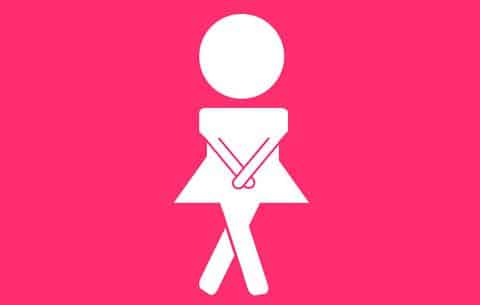
Endometriosis for example, is a chronic condition that effects 1 in 10 women of reproductive age in the UK and is the second most common gynaecological condition. It occurs when cells which are similar to those in the lining of the uterus grow elsewhere in the body. Symptoms of this are excessively painful periods, chronic pelvis pain and fatigue. Unfortunately, there is no cure and the symptoms normally get worse with age and it can lead to poor mental health. Conditions like this can also lead to a loss of productivity and women losing their jobs due to a lack of support and understanding.
Supporting mental health is a key factor in the workplace, especially for women. Women may not suffer from just mental health, but it may stem from other conditions that only they specifically have. The wellness trend has become a worldwide traction amongst women who are looking to live healthier and positive lives in various ways. But, maintaining good mental health isn’t just about superfoods and mindfulness, it is also influenced by how women feel in all areas of their life, including work. Many studies have shown that investing in employee’s wellbeing can improve productivity and performance.
What can women do?
To help sustain good mental and physical health, it is important that women try and find an employer that is supportive of their needs. However, it can be hard to distinguish an employer that will support their needs. So, what can women look for and how can a company demonstrate that they promote good employee health?
When attending interviews or before applying for roles, it may be beneficial to ask or look at the company’s page to see if they recognise women’s health in the workplace through either policies or evidence that they support female workers. Some employers may go the extra mile by raising awareness about how gender differences can impact certain health conditions, offering healthcare provisions and implementing flexible working policies. Workplaces that offer leadership programmes for women can also help employees’ mental wellbeing. Having these programmes is a productive way of motivating employees and leaders to transfer positive attitudes within the business. Companies that also provide facilities such as gym memberships, break out areas and a chance to work through your lunch hour helps women when it comes to maintaining a positive mindset.
What can employers do?
To help support women’s health in the workplace, employers should improve their understanding of different types of health conditions women face so they can put policies and processes into place. Not only will this be necessary to employers, but it will also help women feel more comfortable when they raise their symptoms with their managers as they will be able to provide them with the support they need. Employers should be aware that some conditions may be eligible under the Equality Act 2010 and the health and safety act.
Being aware of women’s health conditions will help employers to make the right decision on the type of support and policies they can offer. Reviewing policies around sickness, maternity leave, flexible working and health and safety will help to ensure that these health conditions are being accounted for.
Making small adjustments at work such as flexible working, allowing home working and giving extra breaks can help support women’s health in the workplace. Providing women with these policies can also help with retention in the workplace as it provides women with time and space in which they can manage their symptoms around their workload.
Employers/HR can also offer guidance to self-management resources to help women’s health in the workplace. Supporting them when managing their symptoms at work through peer support, healthy eating and opportunity to exercise through health practitioners can aid women’s overall productivity.






